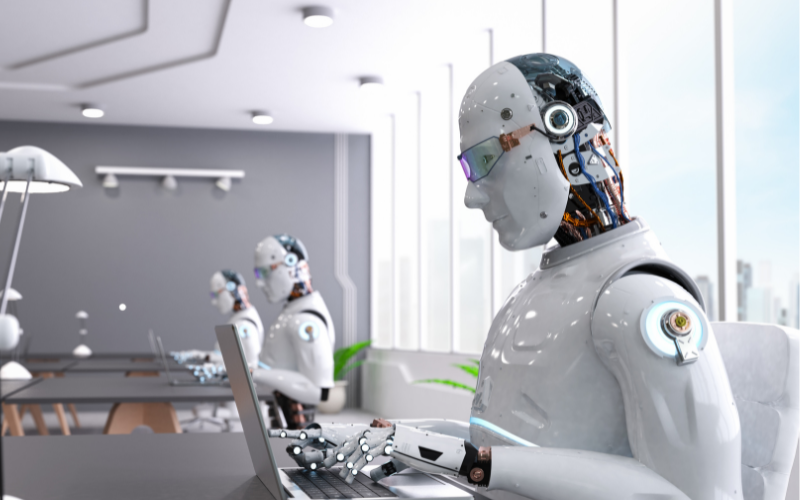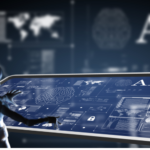In today’s rapidly evolving technological landscape, artificial intelligence (AI) is playing a significant role in shaping the job market. The impact of AI on employment is a topic of considerable debate, with concerns about job displacement and automation. However, it is essential to recognize that AI also brings forth numerous opportunities and creates new job roles. In this blog post, we will explore the transformative effects of AI on the job market, discuss the balance between job displacement and job creation, examine the skills in demand, and provide strategies for upskilling and reskilling.
The Transformation of Job Roles
As AI technologies continue to advance, they are automating routine tasks and impacting traditional job roles across various industries. For instance, manufacturing and assembly line jobs have witnessed significant automation through the use of robotics and machine learning algorithms. However, it is important to note that while certain job roles may be phased out, AI also creates new positions and opportunities. Fields such as data science, AI development, and machine learning engineering have experienced substantial growth and demand.
Job Displacement vs. Job Creation

Concerns about job displacement due to AI are valid, but it is crucial to look at the bigger picture. Studies and research suggest that while certain jobs may be eliminated, AI also leads to the creation of new job opportunities. For example, the rise of AI has fueled the need for professionals who can develop, maintain, and improve AI systems. Additionally, industries such as healthcare, finance, and customer service have seen the emergence of new roles that involve working alongside AI technologies.
Skills in Demand
As AI continues to shape the job market, there is a growing demand for specific skills. Technical expertise in areas such as data analysis, programming, and AI development is highly sought after. Proficiency in machine learning algorithms, deep learning frameworks, and natural language processing is becoming increasingly valuable. Furthermore, soft skills such as creativity, critical thinking, adaptability, and emotional intelligence are crucial for individuals to thrive in AI-driven workplaces.
Upskilling and Reskilling
With the evolving nature of the job market, upskilling and reskilling have become essential for professionals to stay relevant. Lifelong learning is now more crucial than ever. Fortunately, there are various resources available for individuals to enhance their skills. Online learning platforms, specialized courses, and certifications offer opportunities for professionals to upskill in AI-related areas. Furthermore, employers and educational institutions should collaborate to provide training programs and initiatives that focus on AI competencies.
Job Market Trends
AI is reshaping job market trends in several industries. For example, in healthcare, AI-powered diagnostics and telemedicine are becoming more prevalent, creating opportunities for healthcare professionals to collaborate with AI technologies. Similarly, industries like finance are leveraging AI for automated risk assessment and fraud detection, driving demand for professionals with expertise in AI and finance. Understanding these trends can help individuals align their career paths with AI-related opportunities.
Embracing AI as an Opportunity
Rather than fearing the impact of AI, individuals should view it as an opportunity for career growth and development. AI technologies can augment human capabilities, leading to enhanced productivity and efficiency. Collaborating with AI can unlock new possibilities and create innovative solutions. Organizations that successfully integrate AI into their workforce can harness its potential to gain a competitive advantage and drive innovation.
Addressing Concerns
Ethical Considerations and the Role of Humans As AI technologies become more sophisticated, ethical considerations come to the forefront. It is essential to ensure that AI is developed and deployed responsibly, taking into account issues such as privacy, bias, and transparency. Human oversight and decision-making remain crucial, especially in complex domains where ethical judgment is required.
While AI can automate certain tasks, it cannot fully replicate human qualities such as empathy, creativity, and intuition. These uniquely human traits are essential for roles that involve interpersonal communication, complex problem-solving, and strategic decision-making. Recognizing and leveraging the complementary strengths of AI and human intelligence can lead to more productive and fulfilling work environments.
Preparing for the Future: Anticipating AI-Resilient Skills

As AI continues to evolve, it is important to anticipate and develop skills that are resilient to automation. These skills include critical thinking, complex problem-solving, creativity, emotional intelligence, and adaptability. Cultivating a growth mindset and embracing lifelong learning are key to staying ahead in the job market. Individuals should focus on building skills that are difficult to replicate by AI algorithms, enabling them to adapt to changing job requirements.
Government Initiatives and Policies
Governments around the world have recognized the transformative potential of AI and its impact on the job market. Many countries have introduced initiatives and policies to support AI research, development, and adoption. These initiatives often include funding for AI-related projects, collaboration between academia and industry, and the creation of AI-focused centers of excellence. Government support can help create an ecosystem that encourages innovation, job creation, and sustainable economic growth.
Conclusion
AI’s impact on the job market is multifaceted, bringing both challenges and opportunities. While certain job roles may be replaced by AI automation, new positions and opportunities are emerging. By embracing lifelong learning, upskilling, and reskilling, individuals can navigate the evolving job market and capitalize on the opportunities created by AI. Collaboration between educational institutions, employers, and governments is crucial in preparing individuals and society for the AI-driven future. By harnessing the power of AI while retaining our uniquely human qualities, we can shape a future where AI augments our capabilities and creates a more prosperous and inclusive society.







